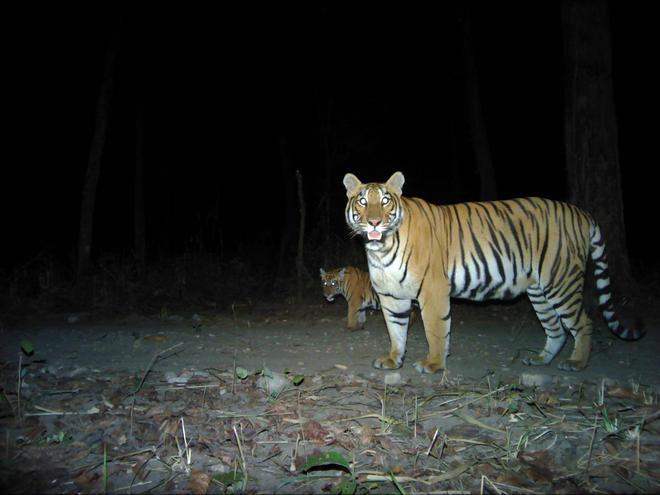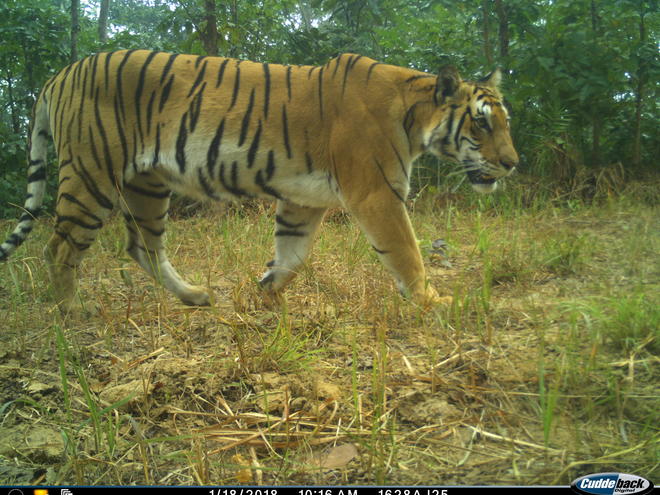

In an amazing show of progress for wildlife, Nepal is on track to become the first of the world’s countries to double its wild tiger population since 2010. According to results from the country’s most recent tiger survey, there are now an estimated 235 wild tigers, nearly twice the number of tigers counted in 2009.
It’s exciting and unprecedented news for this small Himalayan country, one of 13 tiger range countries that pledged to double the number of tigers in the wild by 2022—part of an initiative known as TX2.
“Nepal is a great example for other tiger range countries to step up and commit to the same level of political will and excellence said Ginette Hemley, senior vice president of wildlife conservation at World Wildlife Fund. While this is a huge story for tiger conservation, it also highlights the constant need to ensure the protection of key habitats and the value of a landscape approach for this species to recover and thrive.”
The results
The expansive tiger survey, conducted between November 2017 and March 2018, was led by Nepal’s Department of National Parks and Wildlife Conservation Department of Forests in partnership with WWF-Nepal. Monitoring efforts included 4,387 camera trap images, line transects, and occupancy and prey density surveys. The project covered more than 1,700 miles across protected areas and wildlife corridors in the Terai Arc Landscape—an important transboundary ecosystem with India that’s also home to rhinos, elephants, and nearly seven million people.
Tiger country
Nepal’s happy news arrives at a time when many of the world’s tiger populations are in decline from habitat loss and widespread poaching. As an intrepid leader in tiger conservation, Nepal demonstrates what’s possible when governments, law enforcement, local communities and NGOs work together to support robust protections for this critically endangered species.
In recent years, Nepal joined forces with WWF to strengthen community-based antipoaching and monitoring efforts. The government has also increased its commitments to protect and restore vital tiger habitat—including important wildlife corridors—to ensure tigers have the space and prey base they need to thrive.
Doubling tigers
With fewer than 4,000 wild tigers left in the world, more must be done to ensure tiger numbers keep trending upwards. “Every tiger counts, for Nepal and the world,” said Dr. Ghana S. Gurung, Country Representative of WWF-Nepal. “While Nepal is but a few tigers away from our goal to double tiger numbers by 2022, this survey underscores the continued need to ensure protection and improved and contiguous habitats for the long-term survival of the species.”
Two years ago, WWF shared that, based on the best available data, global tiger numbers had increased for the first time in more than a century. But while countries like Nepal, Bhutan, India, and Russia have made significant gains in recovering their populations, tiger conservation remains a challenge in Southeast Asia, where rampant poaching and deforestation are an ever-present threat.
WWF is working with governments, scientists, rangers, and local communities to put an end to tiger poaching across Asia and prevent habitat loss, and to help communities better address human-tiger conflict.
We’re confident that together, we can double the number of tigers in the wild.
You can help save this incredible species. Pledge to Save Tigers Now.
Published September 23, 2018 at 05:00AM
No comments:
Post a Comment